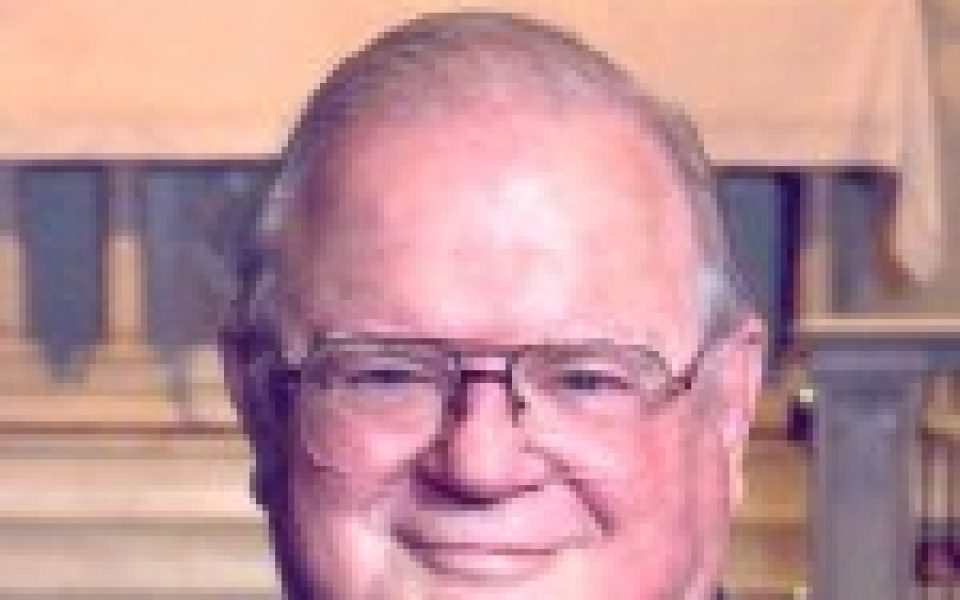Alfred “Chip” Marble, who died in Greensboro at the age of 80 on March 29, was a Southern white clergyman from Mississippi who committed his pastoral work to social justice and racial reconciliation.
Living in accord with the dictates of conscience as a person with white privilege in a society that brutally enforces a code of racial hierarchy requires a certain kind of courage, although — let’s be clear — there’s no comparison with living under the heel of oppression as a person of color.
As an assisting bishop, Marble confirmed me as an Episcopalian in 2006 at St. Francis Episcopal Church in Greensboro. I regret now that I didn’t take advantage of the opportunity to ask him what it was like to be a white person deciding when, if and how to take a stand when black people were subjected to an official reign of terror while trying to register to vote and obtain other basic human rights. At the time of my confirmation, I’d assumed that Bishop Marble had been on the right side of the struggle, but of course it’s never quite that simple. The truth is that human beings usually take calibrated risks based on many factors, including a person’s sensitivity to the suffering of fellow human beings, the egregiousness of abuses and the relative constraints of the institutions like employers, universities, the military and, yes, the church.
My clearest sense of how Bishop Marble grappled with racism in segregated Mississippi comes from a remark he made to the summer interns at the Greensboro Truth and Reconciliation Commission in 2005, as recorded by the commission’s Executive Director Jill Williams.
“Growing up, I had to work on my own personal journey,” Marble told the interns. “You don’t grow up white in a culture like I did without racism being a part of your bones.”
I asked Charlie Hawes, my priest at St. Mary’s House until he retired in the late 2000s, what the Episcopal Church was like in the Deep South in the 1960s so I could understand the ecclesiastic culture that Marble would have found when he entered the priesthood in 1968.
“Our church in Alabama was terrible during the Civil Rights Movement, whereas [the church in] Mississippi was heroic during the Civil Rights Movement,” Hawes told me. “They were even deeper South. The church knew what the church was supposed to be about. I know the bishop of Mississippi… at the height of the demonstrations and marches was really courageous and brave and righteous so that [Marble’s] movement into Mississippi was a movement into a place that had already sort of demonstrated that it was willing to go against the flow of traditional Southern racism. I think he picked up that ball and he really was brave there.”
As an example of the Alabama church’s intransigence, Taylor Branch reports in his magisterial volume At Canaan’s Edge: America in the King Years, 1965-68, that in 1965 Bishop CCJ Carpenter denounced a “ministers’ march” in Selma as “a foolish business and a sad waste of time.” Nonetheless, the presiding bishop decreed that participation in the march had already been approved through church resolutions on voting rights, overriding Carpenter’s objections.
Chip Marble graduated from University of Mississippi in 1958, served in the Navy during the Cuban missile crisis and then attended seminary before receiving ordination to the priesthood in 1968 and pastoring congregations across Mississippi, as he recounted in a 2010 sermon at St. Paul’s Episcopal Church in Cary. Whether because of modesty or because there wasn’t much to tell, he said little about his personal involvement in the civil rights upheavals chronicled by Branch.
I know more about his work in Greensboro, where was an assisting bishop after serving as bishop of Mississippi from 1993 to 2003. Marble enthusiastically promoted the Greensboro Truth and Reconciliation Commission, which produced a report on the 1979 Klan-Nazi shootings. He hoped to replicate the commission in his native Mississippi.
Bishop Marble spoke out against mistreatment of black and Latino officers in the Greensboro Police Department. He reinvigorated the Racial Justice and Reconciliation Committee in the diocese, and he was recognized by the church for his work on behalf of immigrants and the LGBTQ community. And Bishop Marble was a founding co-chair of the Greensboro Faith Leaders Council, an interracial and interfaith body that brings together Christian, Jewish and Muslim clergy.
At the end of that 2010 sermon in Cary, Bishop Marble signed off with some pretty sound advice.
“Get involved,” he said. “Make a difference. A church on mission is really carrying forth God’s kingdom and giving witness to it, or it’s a club. I don’t want to be a member of a club, and I hope you don’t either. Give thanks for so many people down through the years who have worked for justice and equality, for God’s kingdom. And let’s do it, too.”
Join the First Amendment Society, a membership that goes directly to funding TCB‘s newsroom.
We believe that reporting can save the world.
The TCB First Amendment Society recognizes the vital role of a free, unfettered press with a bundling of local experiences designed to build community, and unique engagements with our newsroom that will help you understand, and shape, local journalism’s critical role in uplifting the people in our cities.
All revenue goes directly into the newsroom as reporters’ salaries and freelance commissions.


It was about my second week on the job when I met Marble and Lewis Pitts. It was clear that Marble was a dedicated faith leader and I much admired him. Thanks, Jordan, for filling in a portrait of his life that I was unaware of.
Oh jordy, youre really grand. The way you embrace your white brethren is heavy.
Hey Billy.
Actually, it’s the other paper that’s funded by a rich guy. This one is owned by the journalists.